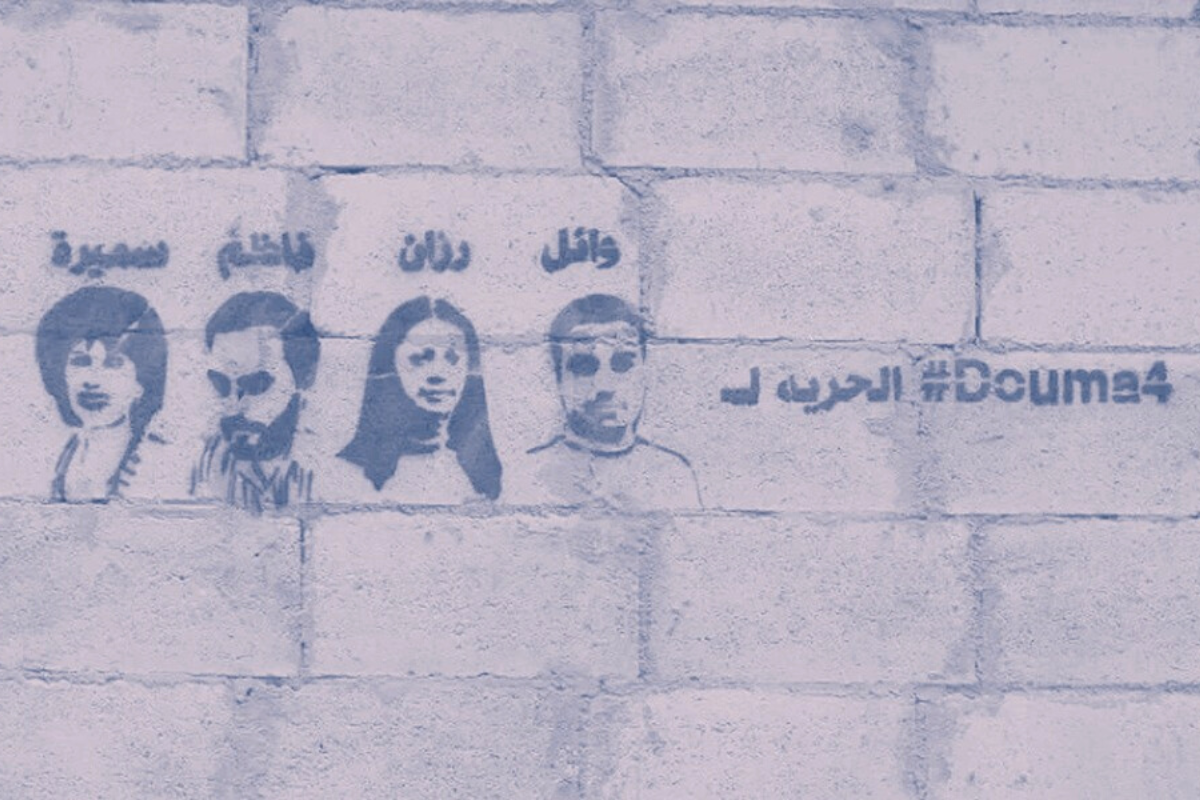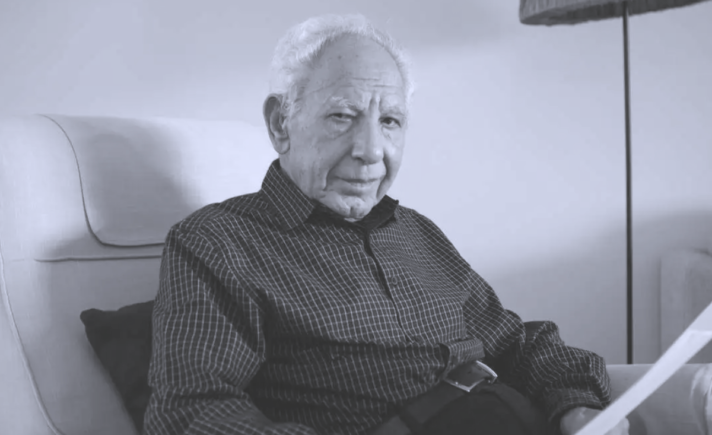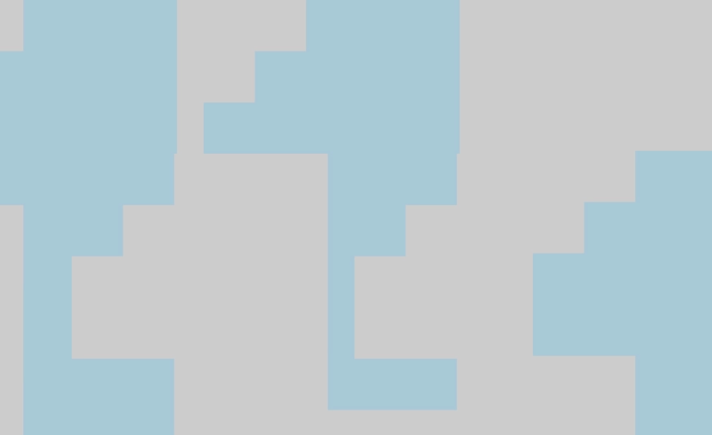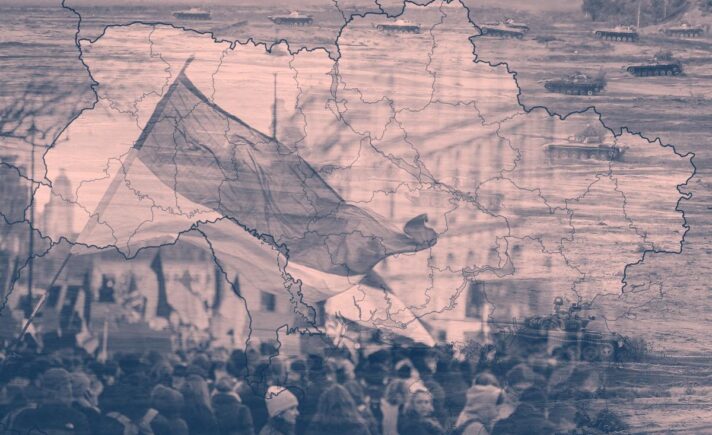What is justice for Samira, Razan, Wael, and Nazim? Initially, the answer seems clear: their release or, if deceased, confirmation of their fate and access to their remains. Full transparency is needed regarding what transpired during their years of absence. Subsequently, those responsible must be brought to an unbiased and credible court to face the consequences of their actions. These three key aspects are essential, as they embody the fundamental level of justice owed to these two women and two men after nine years of absolute uncertainty.
1
Their freedom would give them the power to share their own stories in full detail. They should not have to rely on others – not even us, their heartbroken loved ones – to speak for them. We stand in for them during their absence; but if they were here, they would represent themselves and speak in their own voices. Their accounts would then form part of the broader narrative of the Syrian people’s arduous and multifaceted struggle against the Assad regime. It is likely that this very act – the victims voicing the truth about the crime – is exactly what the perpetrators sought to prevent. This might have been achieved either by keeping Samira, Razan, Wael, and Nazem hidden in captivity, or possibly by taking their lives and concealing their remains.
Should Samira, Razan, Wael, and Nazem be martyrs, our primary wish is to retrieve their bodies and ensure them a respectful final resting place. This would enable us to bid farewell properly, helping us in our mourning and letting us gradually move forward in some way. Otherwise, all we’re left with is the tale of four bodies that were denied a peaceful end, their lives cruelly taken, their story merging with our own harrowing, collective narrative. The thought alone is profoundly painful, yet after nine years without the Douma Four, we can’t avoid facing this harsh possibility. This brutality is nothing compared to what our loved ones themselves suffered.
2
Beyond seeking justice for the lost lives of these two women and two men, we, as their representatives, aim to tell the story they were silenced from telling, in all its complexity. This dimension of justice – the narration of what transpired, who it encompassed, when, where, how, why, and the underlying motives and processes – is often overlooked in discussions about justice. Nevertheless, it is crucial for exposing and holding accountable the perpetrators, both individuals and groups, acknowledging the suffering of the victims and their families, and deriving broader lessons from the tragedy.
In a landmark case like this, which unfolded amid a popular revolution where a religious-political group betrayed fellow revolutionaries under a collective siege, telling the full story is vital. It is key to understanding the history and dynamics of this group and others like it, which played a role in the internal unraveling of the Syrian revolution.
3
What form of justice can be applied to the perpetrators? The answer is complex. Presently, there is no trustworthy Syrian judicial system, nor an international mechanism to investigate the case, interrogate suspects or bring them to a fair trial.
Ideally, one could envision a public tribunal, established along principles and standards of justice set by Syrians, reflective of their collective memory and imagination, attuned to their suffering, and part of a judicial process that is sufficiently thorough. Such a process would reveal the complete truth about the crime to the Syrian public and ensure the perpetrators received appropriate punishment. This concept could draw from the experiences of countries familiar with the crime of enforced disappearance in determining fitting penalties.
We are aware, after all, of the main culprit’s identity: Sameer Kakeh, a “Sharia leader” affiliated with Jaysh al-Islam, who is currently in al-Bab, northern Syria. We know the identity of Omar al-Dirani, a security officer from the same group; as well as the identity of one of the group’s handlers, Hussein al-Shazly, who was involved in threatening Razan and was killed in September 2013. Last but not least, we know the identity of the person who accessed Razan’s computer at a Jaysh al-Islam location, Younis al-Nisreen. These four key figures could potentially lead to a more extensive investigation of this case and other related crimes.
No form of justice found in the national laws of countries like Germany, France, or even through special international courts in The Hague, can fully encompass this case within Syria’s national memory or align it with Syria’s aspirations for fairness and democracy. A special court tailored to this case may be more effective than Western local laws, but it would still resemble a United Nations initiative rather than a chapter in Syria’s own history of fighting for justice and freedom. The challenge with these potential forms of justice lies not only in their adequacy, relative to the atrocity of the crime, but also in their legal and political detachment, which is even more significant than linguistic or geographical differences. This detachment makes it difficult to assimilate these experiences into the Syrian national narrative and draw meaningful lessons from them.
Yet, even in this ideal scenario, is true justice achievable? What constitutes fair punishment for Samira’s nine-year absence, during which her parents and sister have passed away? And what about the parents of Nazem and Wael? What is the just recompense for the ordeal of the Douma Four being separated from us, for us knowing nothing about them all this time, and for them knowing nothing of our lives? Can there be real justice, beyond punishing the perpetrators, if our loved ones were killed either soon after their disappearance or years later, as a means for the perpetrators to prevent the truth about them from emerging?
There is no adequate compensation for suffering and pain. Maybe the concept of ultimate justice, or divine justice, emerged from this reality, in recognition that even the most comprehensive form of retributive justice has its limitations. Such justice involves acknowledging the anguish and tears, and offering solace to those who have endured them.
Yet earthly human justice, though imperfect and relative, is always a possibility in principle – and is necessary. It is shaped by rules created and developed by people in situations similar to ours. This justice is not perfect, but it belongs to our world and is subject to improvement. It helps families to move beyond the paralyzing experience of loss, thus playing a role in the mourning process, which we, too, have been denied.
Our goal is not vengeance or cruelty, but rather a severe penalty for those who denied others the right to exist with their loved ones. This doesn’t mean resorting to the same methods of torture or forced disappearance. We seek to remove such individuals from positions of power and influence, ensuring their crimes are punished in a way that nullifies their capacity for harm and serves as a deterrent. The standard for our desired justice is that it should be based on laws that set precedents, contributing to greater justice for Syrians and potentially others. In essence, we aspire for a judicial process that could hold figures like Bashar al-Assad and his regime’s operatives to the same legal scrutiny and accountability as those affiliated with Jaysh al-Islam.
However, justice seems unattainable in this and countless other cases. Syria has become a haven of impunity, overshadowed by larger criminal figures. The issue of justice is not adequately addressed, and any attempt at it falls short of any fair standard of justice. Our pursuit of justice is a protest, a continuation of the initial hope for a new, more just Syria.
4
Is forgiveness possible?
For forgiveness to be a possibility, justice needs to be realized, and the offenders must undergo transformation and express remorse for their actions. This is not an arbitrary requirement detached from the broader context of justice and forgiveness. Significant, atrocious crimes prompt both these considerations. In a world where crime persists without justice, without apology, and without seeking forgiveness, the concept of forgiveness loses its meaning. It cannot be rightfully given or assumed. Forgiveness is not the opposite of justice – that is revenge. Justice, in fact, prevents the pursuit of revenge and lays the groundwork for forgiveness.
In the Syrian context, forgiveness is seldom discussed, primarily because justice itself is rarely addressed. We exist in a world marred by discrimination and retribution, where both state and religious, local and international entities act unjustly and selfishly.
However, it may now be time to contemplate all three: justice, revenge, and forgiveness. Over the years, we have experienced a kind of retaliatory justice, both governmental and religious, which only leads to a cycle of similar events, perhaps with different aggressors. It is this cycle we must break away from, to pave the way for a new, fundamentally different approach.







